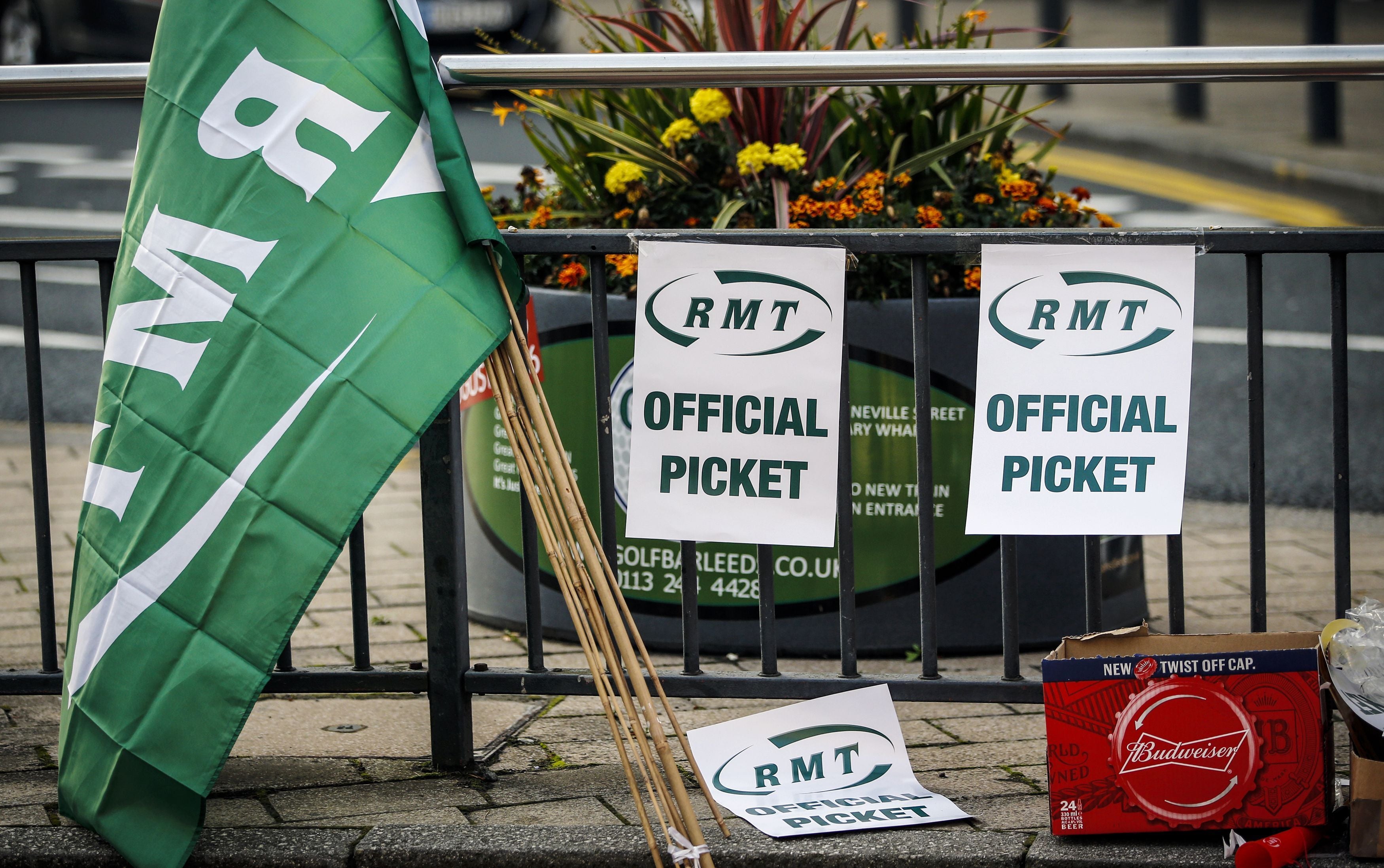I have sympathy for rail strikers – and you should too
Rail workers are simply using the collective power they have, to send a message. There might be a lesson in this


There is no doubt a rail strike across the UK is going to cause a bit of a fuss. Citing lack of job security, compulsory redundancies and frozen pay, members of the RMT union recently voted overwhelmingly for strike action across Network Rail and 13 operating companies. It might be the biggest rail strike in modern history.
Already, there are howls about how the unions are taking over and how RMT workers are selfish, and so on and so forth. But I cannot help but sympathise.
For one thing, many of those striking worked all the way through the pandemic, putting themselves at risk. And some of them, as the RMT's assistant general secretary, Eddie Dempsey, has said, are in the third year of a pay freeze. "Most of our membership are on around £24,000," he said. "We don't think it's unreasonable to say [when inflation] is at 11.1 per cent, we want a pay rise."
I don’t think that is unreasonable either.
I cannot help but wonder is whether the hostility that invariably greets news of a strike betrays a frustration with the powerlessness many feel at work, and a resentment towards those who have the power to say “no”. Our work trend is towards greater collaboration, fewer hierarchies, flexible working, and other policies which – if implemented sincerely, and it is a big "if" – are genuinely progressive. But all manner of working misery abounds, and many feel, justifiably, that to try to address whatever difficulties they face will cause more problems than it solves.
Who can blame them? No one wants to be viewed by their employer as difficult, or disengaged, or selfish; few people are willing to risk falling behind their equals and ruling themselves out of promotion. And such is the competitiveness of many modern workplaces, where so much can now be measured and recorded, that even collective action seems frequently not to be an option, even when everyone's concerns are broadly the same.
Does that sound familiar? I bet it does; and part of the problem, it seems, is that even ostensibly compassionate policies in a business are instituted top-down, and thus liberate the upper echelons from the awful responsibility of having to talk openly with their underlings, which might yield some useful insights concerning the efficacy of those policies.
To keep up to speed with all the latest opinions and comment, sign up to our free weekly Voices Dispatches newsletter by clicking here
It is almost otiose to say there are those in any given company who feel entitled to special treatment, that bosses must consider the business's responsibility to the "whole", and that rights and responsibilities are two sides of the same coin. In other words, it helps to build up a little credit with your employer, to communicate your engagement and care through your work before you make demands. But even the legitimacy of an employer's request is difficult to calculate, even with reference to the terms in their contract.
So much of social life boils down to a never-ending sequence of negotiations. We try to communicate our needs and wants to one another honestly, we accept the right of others to do the same, and we attempt to reach a happy agreement. Our ability to negotiate well depends on our willingness – some would say "ability" – to say "no".
Of course, engaged employees are better employees, but this is too abstract to bargain with. And so many at work feel stuck, resentful at the conditions in which they work, fearful of becoming the office complainer, but unable to leave for whatever reason, and there are plenty of good ones.
Those striking can say no, and having articulated their needs and wants and made the case for them, they are now using the collective power they have to send a message. There might be a lesson in this.





Join our commenting forum
Join thought-provoking conversations, follow other Independent readers and see their replies